The Puccini Festival in Torre del Lago is a must-see event for opera lovers visiting Tuscany. Every summer, during July and August, the festival is hosted at the open-air theater located on the serene banks of Massaciuccoli Lake.
Festival Puccini 2024 Program
This summer, the 2024 Puccini Festival promises to be extraordinary as it celebrates its 70th edition and the 100th anniversary of the composer’s lifetime. Here is the festival program featuring six operas:
Le Willis – Edgar Dittico
- Friday, July 12,
- Friday, July 19.
Manon Lescaut
- Saturday, July 13,
- Friday, August 2.
La Bohème
- Saturday, July 20,
- Saturday, July 27,
- Thursday, August 8,
- Thursday, August 22.
Tosca
- Friday, July 26,
- Friday, August 9,
- Sunday, August 18,
- Saturday, August 24.
Turandot
- Saturday, August 3,
- Saturday, August 10,
- Saturday, August 17,
- Friday, August 23.
Madama Butterfly
- Saturday, August 31
- Saturday, September 7
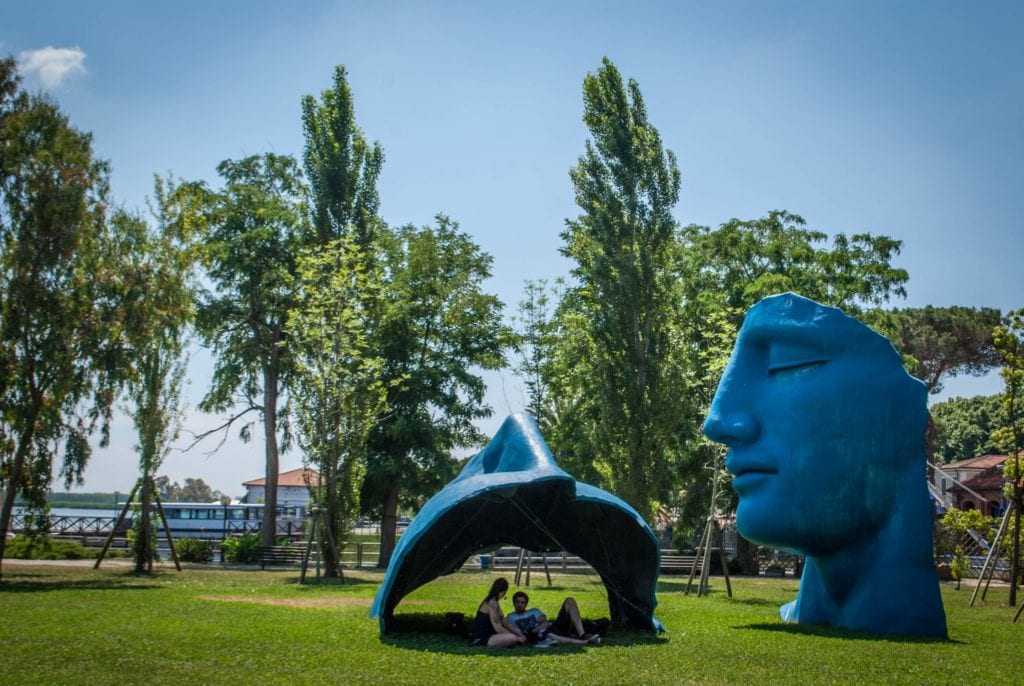
The Connection between Torre del Lago Puccini and the Maestro
The quaint town of Torre del Lago, located along the shores of Massaciuccoli Lake in Versilia, just a short distance from the beaches of Viareggio, gained fame through the celebrated Italian composer Giacomo Puccini. Born in the nearby town of Lucca, Giacomo Puccini is known worldwide for his operatic masterpieces. He fell in love with the beauty and tranquility of this area, choosing to spend significant portions of his life by the lake, where he composed music, relaxed, hunted, and reveled in life. After his passing in 1928, the village was renamed to Torre del Lago Puccini in tribute to the maestro, a point of pride for its residents. His remains are interred in the chapel at his villa alongside his wife and son.
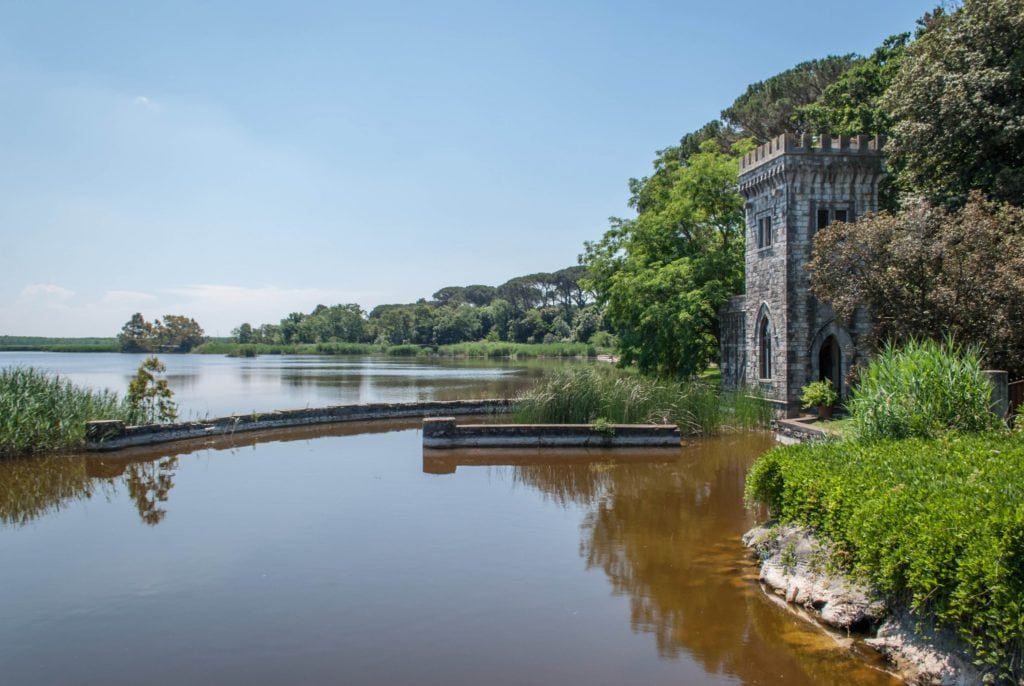
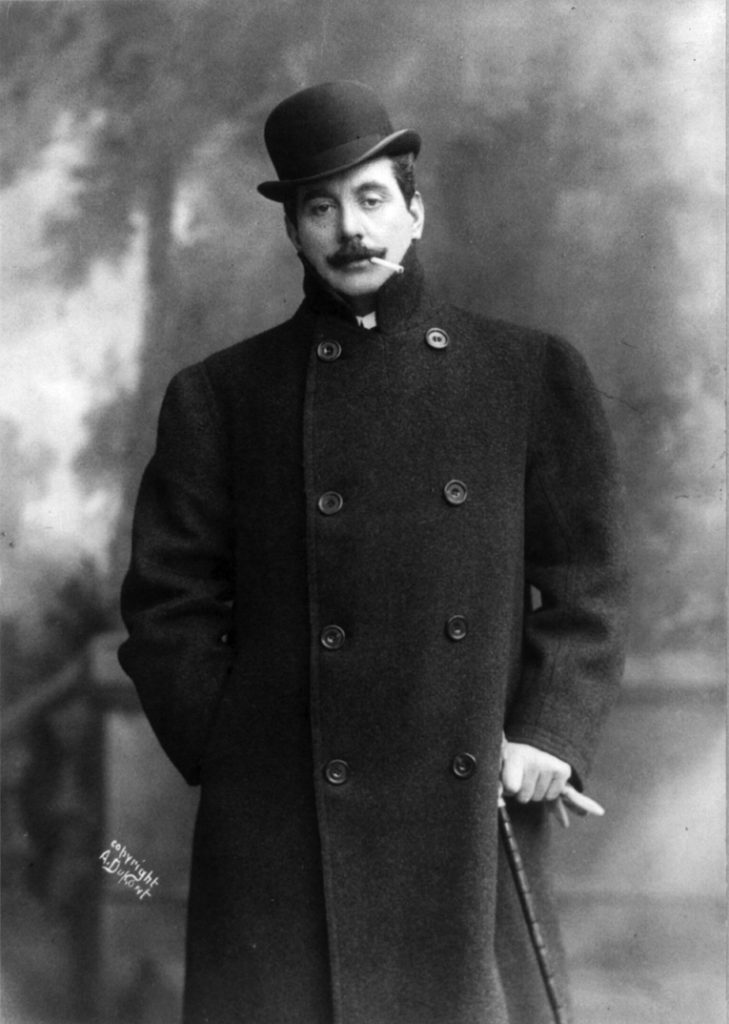
Giacomo Puccini had a profound bond with Torre del Lago. Once, when reflecting on the area, he remarked: “I love hunting, I love cars: and for these pursuits, in the solitude of Torre del Lago, I remain faithful.” He often took his boat from the wooden pier near his home to hunt in the marshes. Additionally, it was in Torre del Lago that he purchased his first car in 1901, allowing him to swiftly reach nearby towns like Viareggio, Forte Dei Marmi, and Lucca. In this town, Puccini composed some of his most significant operas, including Tosca in 1900, Madama Butterfly in 1904, La Fanciulla del West (The Girl of the Golden West) in 1910, La Rondine (The Swallow) in 1917, and Il Trittico in 1918.
The Puccini Festival in Torre del Lago
A grand open-air theater hosts the Puccini Festival, the only festival in the world dedicated exclusively to the maestro. The inaugural edition took place in 1930, and each year, the festival has grown in significance, drawing thousands of enthusiasts and tourists from around the globe. In the park surrounding the theater, visitors can admire contemporary art pieces by artists such as Kan Yasuda, Jean-Michel Folon, and Igor Mitoraj. Inside the theater, a collection of stage costumes from various performances is on display.
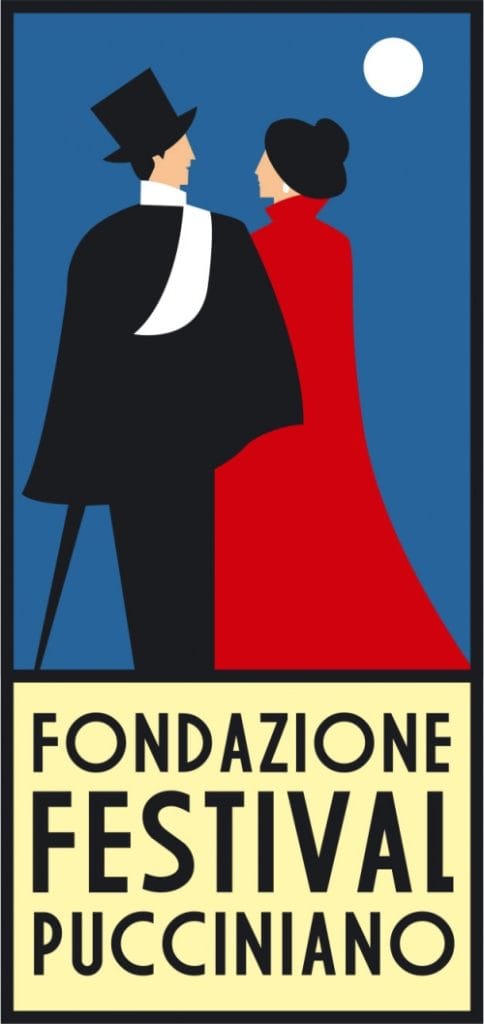
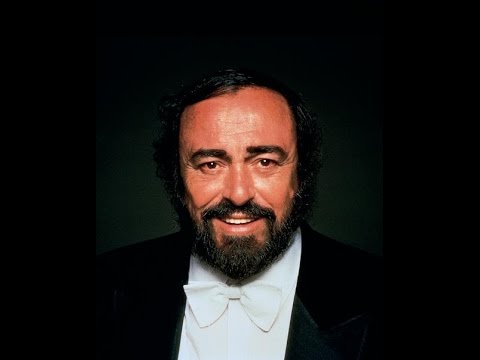
The Puccini Festival has showcased renowned artists including contemporary singers such as Angela Gheorghiu and Rudy Park, under the direction of respected conductors like Vivien Hewitt and the late Ettore Scola. In recent years, prior stars such as Luciano Pavarotti, Franco Corelli, and Andrea Bocelli have graced the stage, performing in breathtaking settings with the lake as their backdrop.
The Operas at the Puccini Festival
Puccini dedicated himself to the art of classical theater music, striving to engage and satisfy his audiences. While the public adored him and his operas, critics sometimes viewed his work with skepticism. He composed a limited number of operas—only 12—as he aimed to create the perfect opera, memorable enough to be featured in leading theaters worldwide. His compositions emphasize interest, variety, speed, depth, and clever stagecraft.
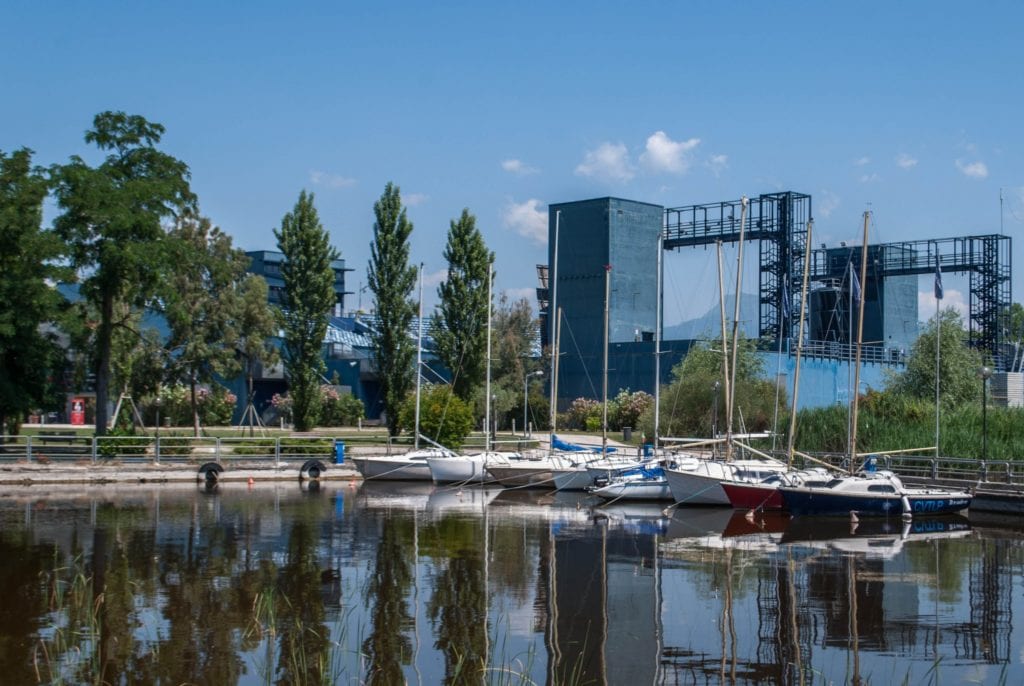
Women play a central role in his operas, serving as the essence and spirit of many of his works. He harbored a deep affection for them. Puccini viewed his female characters as timeless symbols of the fundamental values that underpin any society. Below is a brief overview of some of the prominent Operas typically performed at the Festival.
Tosca
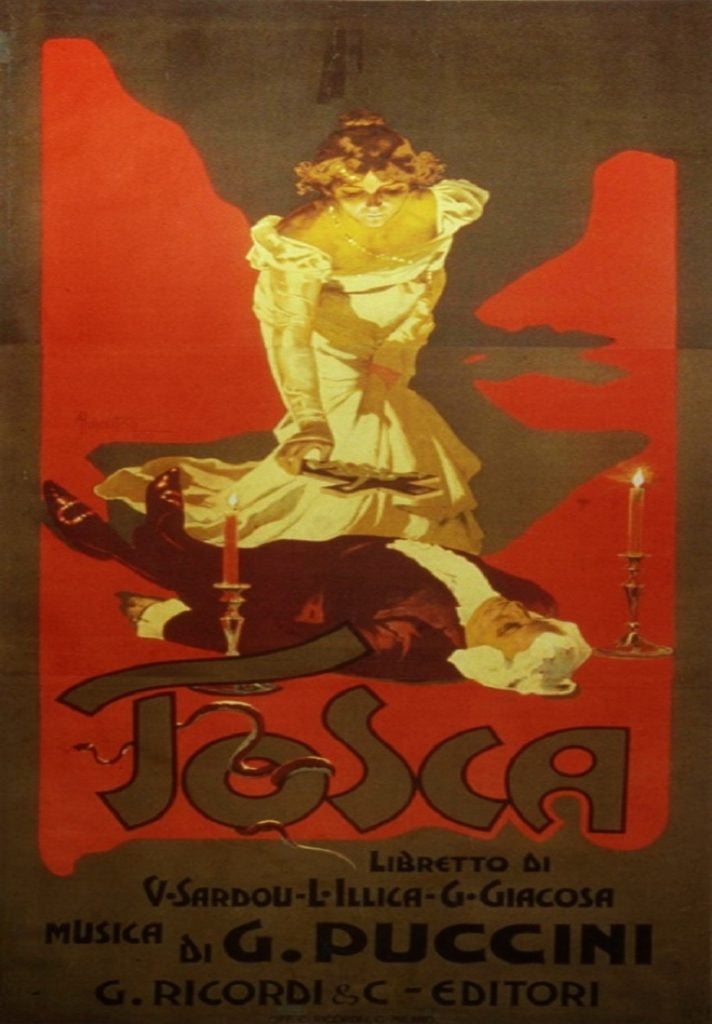
Considered to be Puccini’s most dramatic opera, it is filled with unexpected twists and turns that keep the audience tense throughout. The story revolves around a tragic love triangle involving Scarpia, Tosca, and Cavaradossi.
La Bohème
This four-act opera tells the story of four young Bohemians residing in an old attic in Paris, along with two women, Mimi and Musetta. The poet Rodolfo falls passionately in love with his neighbor Mimi, while the painter Marcello encounters Musetta, a past flame, and realizes their mutual affection never faded. Tragically, Mimi succumbs to tuberculosis, leaving Marcello heartbroken as he longs for her.
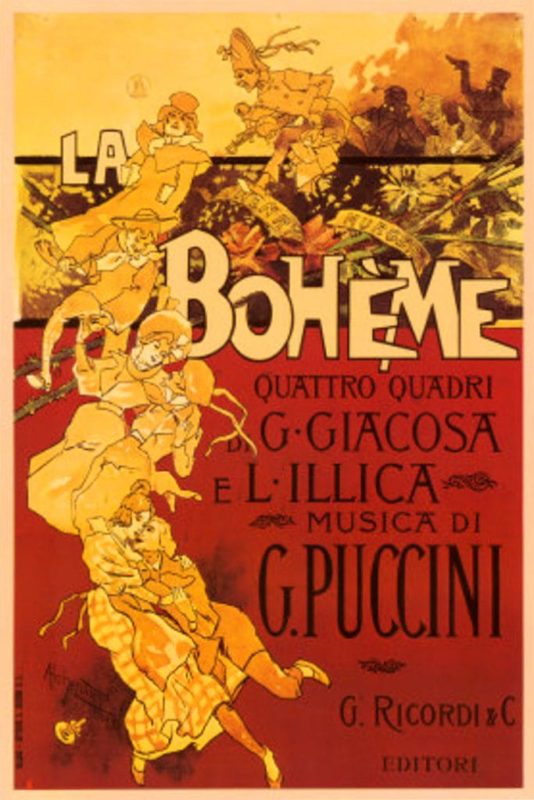
Turandot
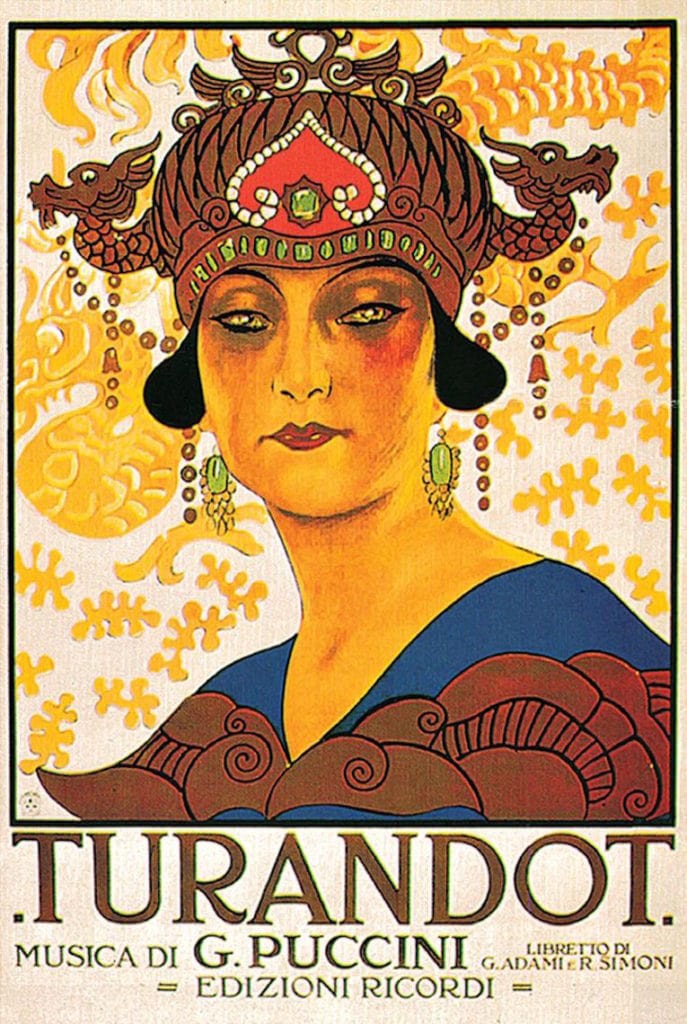
This opera remained unfinished at Puccini’s death and was completed by Franco Alfano. Set in a legendary Beijing, the cold-hearted Princess Turandot makes suitors guess three riddles to win her hand in marriage, resulting in the deaths of many princes. Calaf, a young prince from Tartary, falls for Turandot and bravely challenges fate to win her love. Meanwhile, Liù, a devoted servant, sacrifices herself to save him from his fate.
Madama Butterfly
This opera portrays the tragic marriage between US Navy officer Pinkerton and a young Japanese girl, Ciò Ciò San (Butterfly). Pinkerton marries her temporarily while he resides in Japan, only to abandon her for an American wife later. Butterfly, deeply in love with him and believing in his return, awaits his arrival while pregnant. When Pinkerton returns with his new wife to reclaim their child, Butterfly is heartbroken and chooses to end her life.
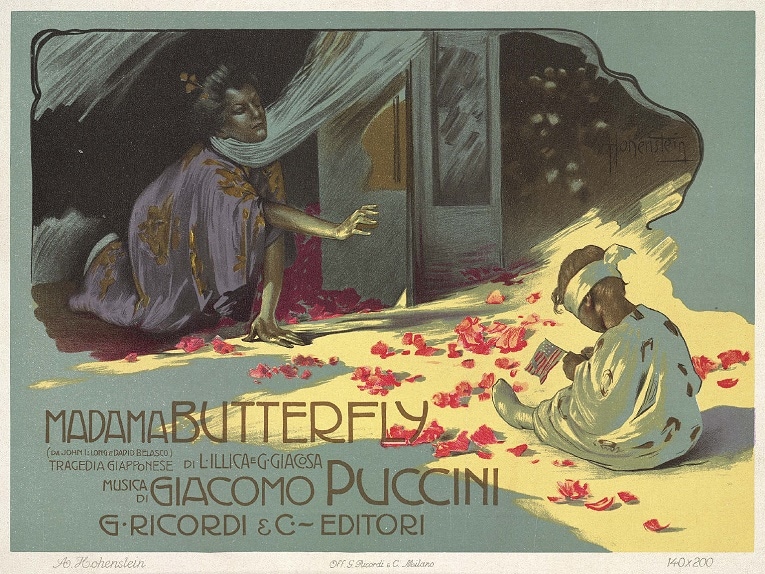
Manon Lescaut
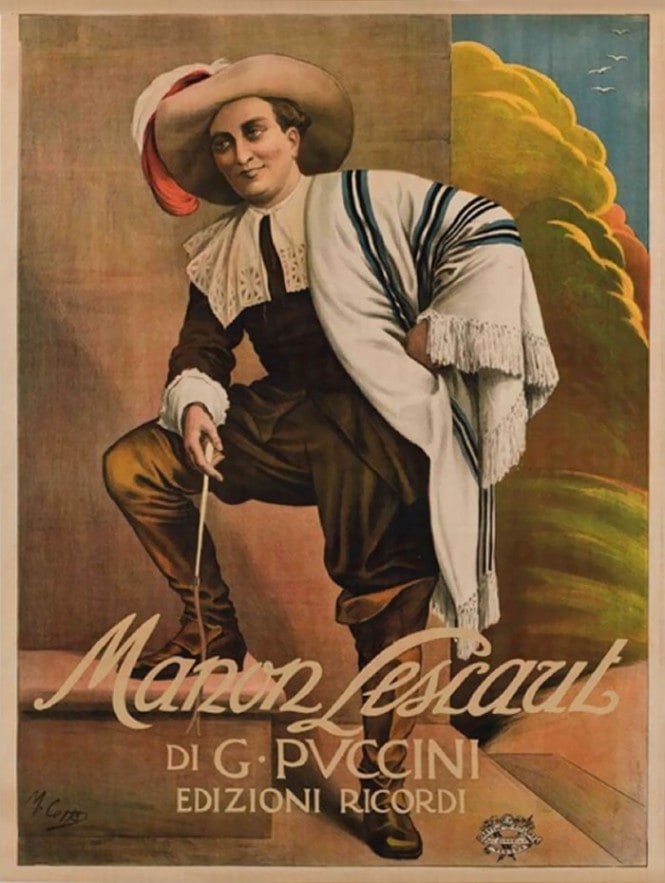
Manon Lescaut is a four-act opera that chronicles the love affair between knight Des Grieux and his beloved Manon. It is based on the novel Histoire du Chevalier Des Grieux et de Manon Lescaut by French author Abbé Prévost. Des Grieux, a naïve young man, falls head over heels for Manon, a girl enamored with wealth, luxuries, and the joys of life, yet destined for a cloistered life against her wishes. Their tumultuous love story unfolds across Paris, Le Havre, and New Orleans.
Il Trittico
Il Trittico is a collection of three one-act operas. The first act, Il Tabarro, is set in 1910 Paris on a barge along the Seine River and tells a dark and violent story. Suor Angelica is Puccini’s favorite work due to its score and occurs in a late 17th-century convent near Siena, depicting a tale of spiritual redemption. Meanwhile, Gianni Schicchi, the most popular of the three, portrays a story of greed and deception set in Florence in 1299.
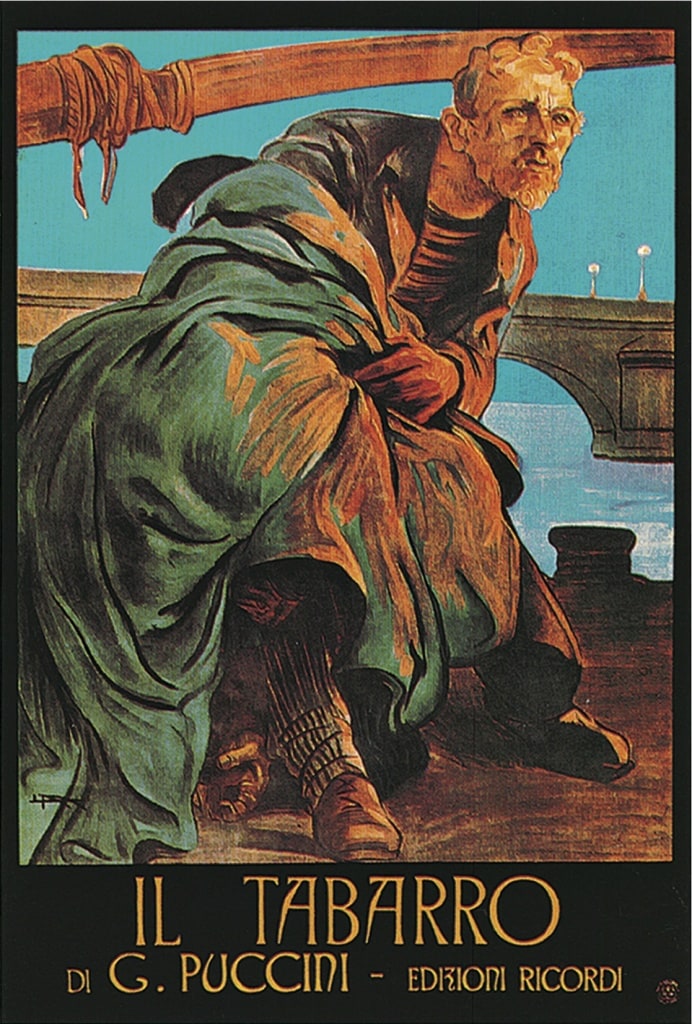
For more information and to purchase tickets, please visit the official Puccini Festival website.
Pin It for Later!
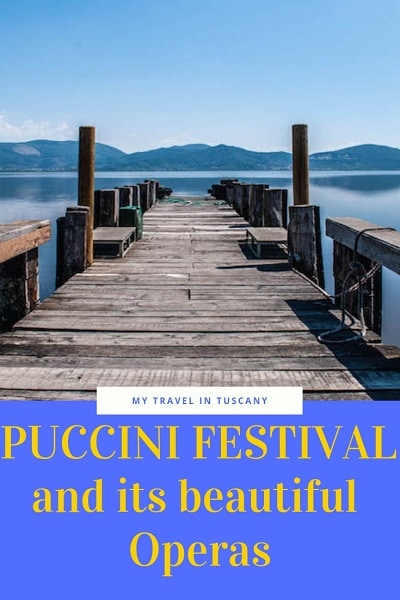
(Updated on 26 June 2024)



